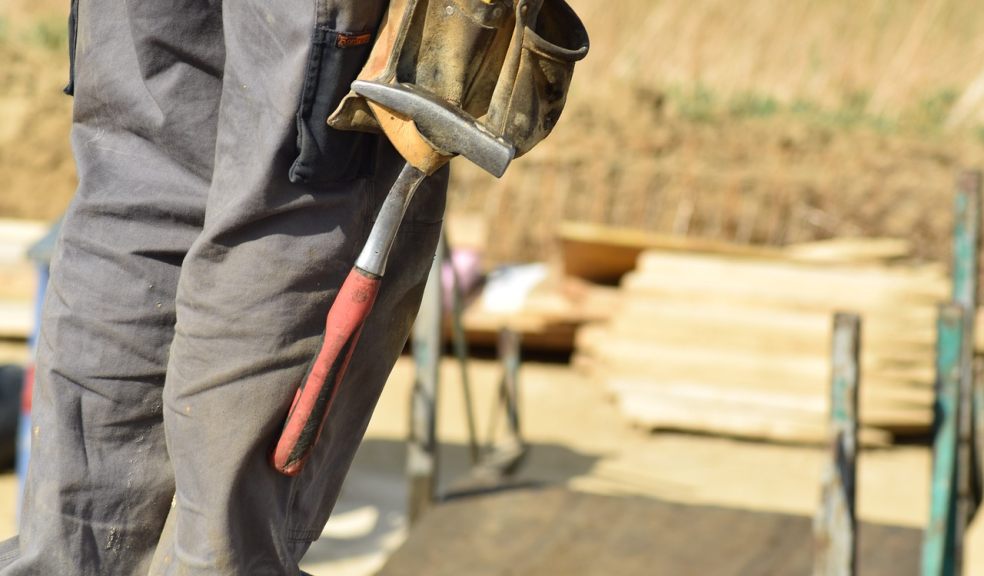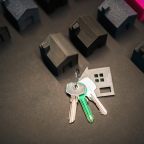
How to Keep Your Budget Down When You're Preparing to Build Your Own Home
You already know that you’re going to have your hands full when you’re building your own home. You’ll have run through the pros and cons already. You’ll have talked to your partner about whether it’s really the best thing to do and agreed that there may not be a better time given the absolute chaos of the UK property market. You’ll have talked about where you want to build it, and how much you’re going to need to lean on the expertise of other people to get you there. And you’ll definitely have talked about how much it’s all going to cost.
It's essential to approach the process with careful planning and consideration to keep your budget under control. Let’s have a look at some strategies and tips to help you minimise costs while preparing to build your own home.
1. Determine Your Budget And Stick To It
One of the first and most crucial steps in keeping your budget down during the home-building process is establishing a realistic budget. Before you embark on this exciting journey, evaluate your finances, assess how much you can comfortably spend on your new home, and set a firm budget. Consider all the expenses, including land acquisition, construction materials, labour costs, permits, and any additional expenses that may arise.
It's important to be disciplined and stick to your budget throughout the project. Resist the temptation to make impulsive design or material choices that may exceed your financial capacity. Being organised and having a well-defined budget will help you make informed decisions, prioritise essential elements, and avoid unnecessary expenses.
2. Plan Your Design Carefully
Thorough planning and design are essential to minimise costs during the construction phase. Start by envisioning the layout and features of your future home. Work with an architect or a home designer to create a detailed plan that meets your requirements while optimising the use of space and resources. Consider factors such as the number of rooms, their sizes, and the overall square footage.
An efficient design can save you money by reducing the amount of construction materials required and minimising waste. Additionally, consider incorporating energy-efficient features into your design. Well-insulated walls, energy-efficient windows, and energy-saving appliances can help you save significantly on long-term utility bills.
3. Research And Compare Contractors And Suppliers
Finding the right contractors and suppliers is crucial for keeping your budget down. Take the time to research and compare multiple options before making any commitments. Seek recommendations from friends, family, or colleagues who have had positive experiences with reliable contractors and suppliers.
Obtain multiple quotes from different contractors and suppliers to ensure you are getting competitive prices. Make sure to thoroughly review their portfolios, check for any necessary licenses or certifications, and verify references. Choosing professionals with a good track record can prevent potential issues and delays that can lead to unexpected costs.
4. Don't Forget About Insurance
One key insurance to consider is site insurance or self-build insurance. This type of policy typically covers risks such as theft, fire, flood, and accidental damage during the construction period. It's important to carefully review the policy details and ensure it provides adequate coverage for your specific project.
Additionally, it's wise to have proper liability insurance. Public liability insurance protects you against potential claims from third parties for injuries or property damage that may occur on the construction site. Employer's liability insurance is also essential if you are hiring workers or contractors to assist with the project.
Consult with an insurance professional who specialises in self-build projects to ensure you have the right coverage and understand the policy's terms and conditions. While insurance adds to your overall expenses, it provides peace of mind and financial protection in case of unforeseen events. For added assurance, tools like albert genius can also help you manage financial aspects of your project. If you’re looking for building warranty providers, get in touch with the team at Buildsafe. They’ve covered over 47,000 properties and they’ve got over 40 years’ experience.
5. Consider Alternative Building Methods
Traditional construction methods may not always be the most cost-effective option when building your own home. Consider alternative building methods that can help you reduce costs while maintaining quality.
Prefabricated or modular homes, for example, offer several advantages. These homes are constructed off-site in a factory-controlled environment, resulting in reduced labour and material costs. Prefabricated homes also allow for greater design flexibility and can often be completed in less time compared to traditional builds.
Another option to explore is sustainable building practices, such as using eco-friendly materials like reclaimed wood, recycled insulation, or solar panels. Sustainable homes not only have a lower environmental impact but can also provide long-term cost savings by reducing energy consumption.
6. Be Involved And DIY Where Possible
Being actively involved in the construction process can help you save money. While some tasks require professional expertise, there are several aspects of the build where you can contribute your time and effort.
Consider taking on some DIY projects, such as painting, landscaping, or even installing fixtures and fittings. Building your own house is also a great opportunity for you to learn new skills if you have the time and patience to perfect them. For example, you could try your hand at brick laying, either using bricks for your home or building a wall in the garden. Whatever you decide, you'll need quality tools to be successful. Rhino Build is a top provider of quality brick-laying tools that are designed to last and give amazing results. However, be realistic about your skills and capabilities. If you're unsure about a particular task, it's better to leave it to the professionals to avoid costly mistakes or safety hazards.
By taking an active role in the building process, you not only save money on labour costs but also gain a deeper understanding of your home's construction, allowing you to address any potential issues promptly.
7. Plan For Contingencies
Even with careful planning, unexpected expenses can arise during the home-building process and no one needs an extra strain on their budget right now. A good rule of thumb is to set aside about 10% to 20% of your total budget so you’ve got a contingency fund.
Having a contingency fund ensures you are financially prepared for any surprises that may occur, such as additional construction requirements or unforeseen site conditions. This way, you can avoid financial stress and keep your project on track without compromising on quality.
In Conclusion
Building your own home is an amazing experience, there’s no doubt about it. But you must approach it with a well-thought-out plan to keep your budget under control. By determining your budget, planning your design carefully, researching contractors and suppliers, considering insurance, exploring alternative building methods, being involved in the process, and planning for contingencies, you can maximise cost savings without sacrificing quality.




















